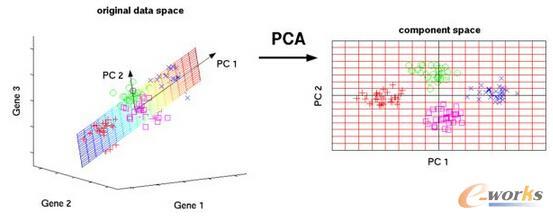Polymerase chain reaction (PCR) testing is the gold standard for diagnosing COVID-19. PCR amplifies the virus DNA 40 times to produce measurements of viral loads that span seven orders of magnitude. Unfortunately, the outputs of these tests are imprecise and therefore quantitative group testing methods, which rely on precise measurements, are not applicable. Motivated by the ever-increasing demand to identify individuals infected with SARS-CoV-19, we propose a new model that leverages tropical arithmetic to characterize the PCR testing process. Our proposed framework, termed tropical group testing, overcomes existing limitations of quantitative group testing by allowing for imprecise test measurements. In many cases, some of which are highlighted in this work, tropical group testing is provably more powerful than traditional binary group testing in that it require fewer tests than classical approaches, while additionally providing a mechanism to identify the viral load of each infected individual. It is also empirically stronger than related works that have attempted to combine PCR, quantitative group testing, and compressed sensing.
翻译:聚合酶链反应(PCR)测试是诊断COVID-19的黄金标准。 PCR放大了病毒DNA40次,以便对7个数量级的病毒负荷进行测量。不幸的是,这些测试的产出不精确,因此,依靠精确测量的定量组测试方法不适用。由于越来越需要识别受SARS-COV-19感染的人,我们提出了一个新的模型,利用热带算术来描述PCR测试过程的特点。我们提议的框架,称为热带组测试,通过允许不精确的测试测量,克服了定量组测试的现有限制。在许多情况下,在这项工作中,热带组测试比传统的二元组测试更强大,因为它比传统方法需要的测试少,同时提供机制来识别每个受感染的人的病毒负荷。在经验上,它也比试图将PCR、定量组测试和压缩感测结合起来的相关工程更强大。




